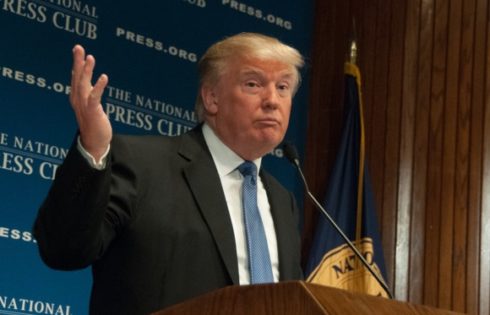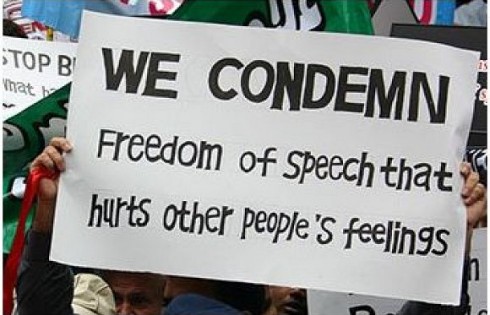
Educators should ‘reorient’ their approach to the law, professor says
While University of Michigan leadership recently announced its plans to roll back “diversity, equity, and inclusion” programming, it may face resistance from its own faculty.
A recent webinar that drew 900 participants urged faculty to use their “collective power” to resist President Donald Trump’s attempts to push back against DEI in higher education.
The Trump administration has engaged in “very substantial overreach,” UM Law Professor Samuel Bagenstos said during the webinar titled “Diversity, equity & inclusion initiatives are legally defensible and here is how higher education should respond.”
The administration is “trying to suggest and intimidate people into thinking that DEI programming is inherently unlawful when, in fact, DEI programming of many, many, many, many, many kinds is perfectly lawful,” Bagenstos said.
“There is no law in the United States as a whole that prohibits DEI programming,” he said, adding that “doing so would raise very significant First Amendment issues.”
Bagenstos said the law prohibits classifying “people based on their race and giv[ing] those people better or worse treatment.” However, it does not prohibit taking action against racial inequality and racial segregation, he said.
The professor also criticized the “Dear Colleague Letter” issued by the U.S. Department of Education last month, which declares that DEI efforts are discriminatory and warns that universities could lose federal funding if they continue to employ them.
The “letter suggested that if there are discussions of racially charged issues in classrooms, and that makes some members of a majority race, some white people feel worse about themselves, that might be a racially discriminatory act that’s unlawful. That is not true,” he said.
Further, the letter inaccurately claims that race-neutral policies aimed at reducing racial gaps are illegal, he said.
Reached for comment, Bagenstos sent The Fix a recent memo he wrote arguing federally funded institutions should not view President Trump’s executive order titled “Ending Illegal Discrimination and Restoring Merit-Based Opportunity” or the “Dear Colleague Letter” as “requiring the elimination or curtailment of existing DEI initiatives.” The memo was signed by 24 professors across the U.S.
Furthering this argument, University of Texas at Austin Professor Liliana Garces said during the webinar the “Dear Colleague Letter” is not legally binding and threatens academic freedom.
She said it “goes as far as saying that even race-neutral efforts are not permissible. And those are efforts that don’t even consider race, but aim to achieve the goal of diversity.”
“And what it’s doing is trying to dictate the very goals that institutions and education professionals can think about,” she said.
“In other words, you have the government imposing its own views of how schools and universities should operate. And the First Amendment prevents the government from doing that,” she said.
Asked by UM Professor Matthew Countryman what faculty can do to preserve DEI practices, Garces said they should “reorient” their approach to the law.
“We need to remember the fact that just because something is written in a legislative bill or an executive order or some other policy does not mean it’s lawful … And we have agency in how we respond. We have collective power in our responses,” she said.
“These policies do not implement themselves,” Garces said.
She also told attendees race-conscious policies are still necessary to achieve equal protection under the 14th Amendment.
Research shows that “being attentive to the barriers that exist” and recognizing “the inequities at play” helps “ensure a fair system” and “equal protection,” she said.
Further, the professor warned attendees that the current political climate is imposing a “colorblind” or “race-evasive” perspective that ignores inequities.
Conservatives wrongly frame any race-conscious law as discriminatory by focusing solely on whether they make racial distinctions, she said.
“And what we’re seeing is the imposition of this ideology and this perspective through guidance around how to interpret legal decisions, state laws, and executive orders, so that educators are forced to change their practices,” she said.
“And it ultimately restrains our ability as educators from advancing the values that are integral to our educational mission,” she said.
MORE: UMich to shut down DEI office, discontinue DEI programming
IMAGE CAPTION AND CREDIT: Professors Matthew Countryman, Liliana Garces, and Samuel Bagenstos discuss DEI during a webinar; University of Michigan
Like The College Fix on Facebook / Follow us on Twitter






Please join the conversation about our stories on Facebook, Twitter, Instagram, Reddit, MeWe, Rumble, Gab, Minds and Gettr.